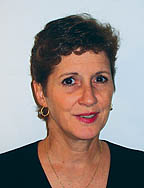
Not so long ago I paraphrased Tom Peters and suggested that supply houses “stick to the PVF” - and outsource everything else. But what about consulting? Exactly when should a company consider bringing in a consultant? And how does the company find the right consultant? Just what do consultants do? This is something I am very close to - being a consultant myself. This article will share my insights on consulting.
Hiring a consultant is difficult and many face it with trepidation. In order for the consultant to do any good, you will need to tell him or her about your finances, your personnel, your goals and ambitions, and of course - your problems.
So let's break down this difficult decision.
What do consultants really do?
Consultants are professionals - much like doctors, lawyers and accountants. A PVF house would benefit from a generalist consultant - someone with a broad business background. This person sees how your entire company works and should know operational and business process improvement. This person will help you streamline your day-to-day warehouse operations, improve inventory accuracy, while reducing inventory. PVF houses typically need outside advice on sales, marketing and also customer service. Here your generalist consultant can help your salespeople really sell, not just take orders, and can point out additional services you can offer for increased margins.When is the right time to call in a consultant?
You want to call a consultant when you feel like your business is “stuck.” Your revenues are flat or growing very slowly. Your costs are growing at a faster rate than revenues. Problems with vendors and customers never seem to get resolved. You have the same problems with sales, the warehouse, etc., over and over. Something isn't working but you don't quite know what it is - or what to do about it.How do I find a consultant?
Check with your suppliers or vendors. Find someone who recently hired a consultant. Try your chamber of commerce, friends, neighbors. You want to find a consultant who has some industrial, warehouse experience, but not necessarily a PVF expert. The PVF world can be pretty insular. Many supply houses do business the same old wrong way, because that's the only way they know. Hiring a consultant who has lots of non-PVF experience can expose you to many good ideas from other industries. Why not learn techniques from retailers, or distributors of food, spare parts, etc.?
Look in the trade magazines. Ask the editor, ask the people who write the articles and ask the people in the companies profiled. Somebody out there knows about a good consultant - one who understands warehousing and distribution and can bring you real measurable value.
How do I select the right consultant?
Go with your gut. The starting point for selection is you really have to like, respect and trust this person, or it just won't work. Remember, you are going to have to share the company finances, concerns about personnel, and sensitive issues for the consultant to be effective. You are going to be working a lot with this person, and this work will involve change. Change is tough. I don't care how brilliant a consultant is - it is not going to work if you don't like the person.Liking the person isn't enough. You still need a thoroughly qualified consultant. Interview them. Ask them questions about past successes and failures. Describe some of the problems you are having right now. And watch and listen to their responses carefully.
Did the consultant answer you? Or did you get a rambling war story about another client? Did the consultant understand the issue and ask questions - or did the person come up with a quick slick solution? Could you see the logic in their approach? Were they a little too glib - speaking only in big sweeping generalities? And here's a key point - did you hear the phrase “I don't know”? Don't hire a know-it-all. They're not going to improve your company's performance - they're far too busy being “important” or “right.” Small companies need flexibility. Test each candidate. Do they have a rigid project methodology, or can they adapt to your company's schedule and financial situation?
Here are six criteria for selecting a consultant.
1. Does the consultant have an approach that makes sense?
Some consultants apply “their” solution to your problems - even if “their” solution is not the right one.
2. Do you know which consultant is going to be working on the project?
Some consulting firms use your company as a training ground for their new recruits and expect you to pay for it!
3. How does the consultant propose to demonstrate results?
Some consultants don't have project planning skills, or know how to measure results. Measurement is critical. If you can't measure it, it's not real.
4. Does the consultant have an exit plan?
Some consultants will want to stay with you indefinitely. Both of you should have better things to do.
5. Does the consultant have a proven track record of successful projects?
Referrals from previous clients should be offered.
6. What is the consultant's project schedule and billing structure?
Some consultants add people to a project to elevate billing. Others “front-load” the billing, maximizing their profit before the results are in.
